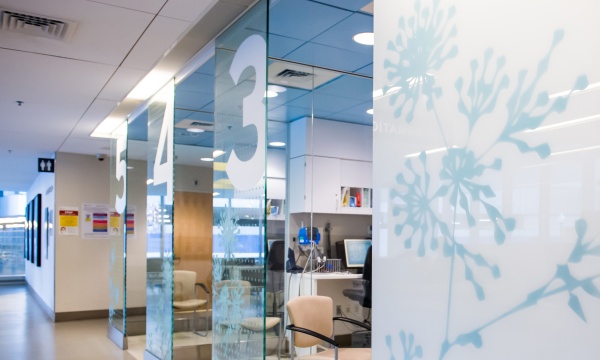Division of Ultrasound in Emergency Medicine


Explore This Division
About This Division
The Massachusetts General Hospital Emergency Department Division of Emergency Ultrasound was founded in 2003. The program initially pioneered the development and initiation of a mandatory training rotation for residents in the Harvard Affiliated Emergency Medicine Residency program and introduced the concept of point-of-care ultrasound diagnostics to the care and treatment of patients in the emergency department at Mass General.
The program now includes:
- A one-year emergency ultrasound fellowship program for graduates of emergency medicine residency programs, with a parallel visiting fellows program for international physicians interested in learning point-of-care ultrasound
- A robust research program in new applications for point-of-care ultrasound and outcome research studies looking at the impact of point-of-care ultrasound on patient care
- A medical student elective for fourth year students to learn point-of-care ultrasound
- Continuing medical education courses for physicians in many specialties
Fellowship Program
The Emergency Ultrasound Fellowship Program at Mass General began in 2007. The fellowship is designed to provide graduates of emergency medicine residency programs here in the United States with advanced training in ultrasound image acquisition and interpretation, training in how to build and develop an emergency ultrasound program, and opportunities for research in emergency ultrasound applications. In addition, each fellow will have the opportunity to lecture to regional and national continuing medical education conferences and develop their own didactic teaching material in emergency ultrasound.
International Fellowships
The international fellows program began in 2007 and since its inauguration we have had fellows from Spain, Scotland, England and Colombia come to Boston to learn emergency ultrasound. Applicants must be physicians, but because the program is educational and not clinical, medical licenses for practice in the United States are not required. International Fellows may come for a period of time between one month and one year depending on space availability. All fellows participate in educational conferences, teaching sessions and the Division's didactic program. In addition, they attend the weekly Division meeting and have access to all of the educational resources of the Division. There is a tuition associated with the program and international fellows are required to find their own housing and provide their own transport costs. International fellows leave the program with a report documenting the number and quality of scans performed, and a certificate documenting the completion of the program. Interested parties can contact Andrew Liteplo at aliteplo@partners.org for more information.
Research
The Division has a robust research program and currently has numerous studies ongoing. In the past six years, faculty and fellows have produced research and published on topics such as optic nerve sheath ultrasound and its correlation with intracranial pressure monitoring as well as optimal techniques for optic nerve sheath scanning, learning curves for performing chest ultrasound, a comparison of teaching techniques in emergency ultrasound for both residents and prehospital personnel, correlation of thoracic ultrasound findings of pulmonary congestion and natiuretic peptide point-of-care test results, financial implications of emergency ultrasound programs, the correlation of ultrasound findings with signs and symptoms of high altitude illness and analgesia's impact on the sonographic Murphy's sign and biliary ultrasound test accuracy.
The Ultrasound Division is also a site for an AHRQ grant looking at outcomes for different diagnostic evaluation protocols for patients presenting with renal colic. In addition, the division participates in the REASON network - a multi-center ultrasound outcomes research network.
The Mass General program has also been fortunate enough to participate extensively in the introduction of point-of-care ultrasound in several international settings. Currently, there are ongoing studies in Rwanda, Malawi and Zambia on the impact of point-of-care ultrasound on patient care and outcomes in these settings as well as on resource utilization. For interested applicants there are many opportunities to become involved in teaching and research in these settings.
Our Team
-
![]()
- Chief, Division of Ultrasound in Emergency Medicine
- Director, Center for Ultrasound Research and Education
-
![]()
- Associate Professor of Emergency Medicine at Harvard Medical School
- Director, Emergency Ultrasound Fellowship
- Director, Emergency Ultrasound Research
A Top Hospital in America
Mass General is recognized as a top hospital on the U.S. News Best Hospitals Honor Roll for 2024-2025.
Make a Difference for Emergency Medicine
The Mass General Department of Emergency Medicine is on the front lines, delivering timely, compassionate care in a high-pressure environment. Your support allows us to provide a lifeline to some of the most vulnerable individuals in our community.


